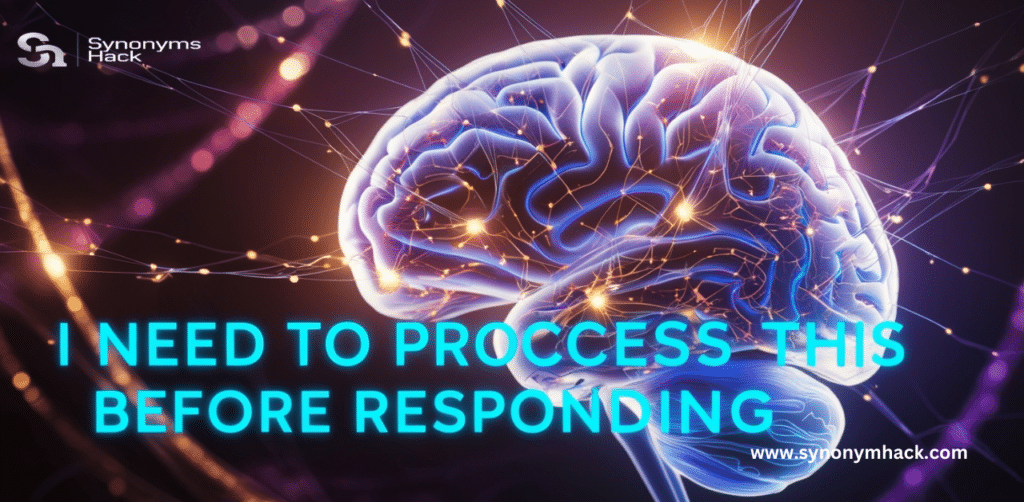Living with or dealing with a narcissist can feel like walking through an emotional minefield. Every conversation becomes a chess match where you’re always one move away from an explosion. Finding the right phrases to disarm a narcissist isn’t just helpful, it’s crucial for your mental well-being.
Does Sarah’s cutting criticism make you doubt yourself? Or maybe David’s constant need for attention leaves you emotionally drained? You’re not alone. Learning to handle person with narcissistic personality disorder effectively can transform these challenging relationships.
Understanding person with narcissistic personality disorder
Before diving into specific phrases, let’s understand why traditional communication methods often fail with narcissists. People with narcissistic personality disorder typically display:
- Grandiose sense of self-importance
- Need for constant admiration
- Lack of empathy
- Manipulation tactics
- Emotional volatility
You must read: 60 Heartfelt Replies to ‘Thank You for Your Hospitality’
The Psychology Behind Effective Communication with Narcissists
When handling conversations with narcissists, remember that their behaviors stem from deep-seated insecurities. This understanding will help you deploy these phrases more effectively.
Disarm person with narcissistic personality disorder

1. Clear Boundary Statements
- “I understand your perspective, but this doesn’t work for me.”
- Example: When Mark demands immediate responses to his late-night messages, Jennifer responds: “I understand you want quick replies, but I won’t be checking messages after 8 PM.”
- “I need time to think about this.”
- Example: When Lisa’s self-centered colleague pressures her for an immediate project commitment, she calmly states: “I need time to think about this and review my schedule.”
- “That behavior isn’t acceptable to me.”
- Example: After Tom’s belittling comments, Rachel responds: “Speaking to me in that tone isn’t acceptable to me.”
- “I’m not comfortable with that.”
- Example: When Sarah tries to manipulate family gatherings, Mike states: “I’m not comfortable changing plans last minute.”
- “Let’s stick to the facts.”
- Example: During heated discussions, Amanda redirects: “Let’s stick to the facts about what actually happened.”
- “I won’t participate in this conversation if…”
- Example: “I won’t participate in this conversation if you continue raising your voice.”
- “My decision on this is final.”
- Example: When Jake tries to negotiate established boundaries, Maria stands firm: “My decision about weekend availability is final.”
- “I deserve to be treated with respect.”
- Example: After continuous subtle put-downs, Chris asserts: “I deserve to be treated with respect, just like everyone else.”
- “That’s not up for discussion.”
- Example: When Amy’s self-centered parent tries to control her career choices: “My career decisions are not up for discussion.”
- “I won’t engage in this behavior.”
- Example: During attempts at triangulation, Peter states: “I won’t engage in conversations about other family members.”
Don’t miss it: 50 Thoughtful Replies to ‘Get Well Soon’ Messages
Accountability Statements for Maintaining Control

Effective Phrases for Holding Ground
- “I hear what you’re saying, but I see it differently.”
- Example: When Kevin tries to rewrite history, Michelle responds: “I hear your version, but my experience was different.”
- “That’s not my recollection of events.”
- Example: During a gaslighting attempt, Alex firmly states: “That’s not how I remember our agreement.”
- “I notice you often change the subject when…”
- Example: “I notice you often change the subject when I bring up your missed commitments.”
- “Could you help me understand your reasoning?”
- Example: When facing illogical demands, Emma asks: “Could you explain why this deadline changed three times?”
- “I need specific examples.”
- Example: When faced with vague accusations, Daniel responds: “Can you provide specific instances where this occurred?”
- “Let’s address one issue at a time.”
- Example: During an overwhelming confrontation, Sophie suggests: “Let’s focus on the budget issue first, then discuss the timeline.”
- “I’m witnessing a pattern here.”
- Example: “I’m noticing a pattern of last-minute cancellations.”
- “That doesn’t align with what we agreed upon.”
- Example: When facing moved goalposts, Ryan states: “This differs from our original agreement.”
- “I need to fact-check that.”
- Example: “Before proceeding, I need to verify these numbers with our previous records.”
- “Let’s revisit our original discussion.”
- Example: “Can we return to what we initially discussed about project roles?”
Don’t miss it: 150+ Powerful Saturday Blessings and Prayers
Self-Preservation Expressions

Protecting Your Mental Well-being
- “I need to step away from this conversation.”
- Example: When feeling overwhelmed, Laura says: “I need a break to process this information.”
- “I’m setting this boundary for my well-being.”
- Example: “I’m limiting our interactions to work hours for my mental health.”
- “That’s your interpretation, not my intention.”
- Example: When accused of hidden motives, James responds: “That’s your view, but it wasn’t my intent.”
- “I’m comfortable with my decision.”
- Example: Despite pressure, Hannah maintains: “I’m confident in my choice to change departments.”
- “I won’t take responsibility for your feelings.”
- Example: When blamed for someone’s emotional state: “While I care about your feelings, I’m not responsible for them.”
Gray Rock Technique Phrases

Strategic Responses for Emotional Distance
- “That’s interesting.”
- Example: When Nathan tries to provoke a reaction with outlandish claims, Lisa responds flatly: “That’s interesting” and returns to her work.
- “Perhaps.”
- Example: Facing Karen’s dramatic predictions about project failure, Mike simply replies: “Perhaps. We’ll see how it develops.”
- “I’ll take that into consideration.”
- Example: When receiving unsolicited advice, Rachel responds: “I’ll consider that” without further engagement.
- “I see.”
- Example: During Amanda’s lengthy complaint about office politics, Brian maintains emotional distance with: “I see.”
- “Thanks for sharing your perspective.”
- Example: After an unnecessary critique, Christina replies: “Thanks for sharing your thoughts” and changes the subject.
You may like: 50 Powerful Prayers for Good Luck
Professional Setting Responses

Maintaining Workplace Boundaries
- “Let’s stick to our agreed-upon protocol.”
- Example: When David bypasses normal channels, Sarah states: “Please submit the request through our standard process.”
- “I’ll need that in writing.”
- Example: Following verbal promises, Jennifer responds: “Please email me those project changes for documentation.”
- “Let’s involve the appropriate team members.”
- Example: During solo decision attempts, Mark suggests: “We should include the project lead in this discussion.”
- “My bandwidth is currently at capacity.”
- Example: Facing extra work demands, Tyler responds: “I’m fully committed to existing priorities right now.”
- “This requires proper documentation.”
- Example: “Before proceeding, we need formal approval from management.”
Emergency Response Phrases

Handling Crisis Situations
- “This conversation needs to end now.”
- Example: During escalating hostility, Emma firmly states: “We’re ending this conversation here.”
- “I’m removing myself from this situation.”
- Example: When tensions rise, Alex announces: “I’m stepping away now” and leaves the room.
- “My boundary is non-negotiable.”
- Example: Facing repeated boundary violations, Jessica asserts: “This isn’t up for debate.”
- “I will not engage in this behavior.”
- Example: When baited into an argument, Marcus states: “I’m not participating in this dynamic.”
- “Stop. This is unacceptable.”
- Example: When crossed lines occur, Lauren firmly declares: “Stop. This behavior is unacceptable.”
You should read: 100 Genuine Ways To Reply Thank You for Birthday Wishes
Deflection and Redirection Phrases

Skillful Ways to Shift Toxic Conversations
- “Let’s focus on solutions instead of blame.”
- Example: When Monica spirals into accusatory rants, Paul redirects: “Instead of discussing who’s at fault, let’s look at how we can fix this.”
- “That’s an interesting interpretation, but let’s stay on topic.”
- Example: When Jake tries to derail a meeting with personal grievances, Ashley responds: “We need to address the quarterly goals first.”
- “I understand you have strong feelings about this, but…”
- Example: During an emotional outburst, Diana says: “I hear your frustration, but we need to discuss this professionally.”
- “Let’s table that for now and focus on…”
- Example: “While that’s worth discussing later, right now we need to address the immediate deadline.”
- “I appreciate your input, but this requires a different approach.”
- Example: When faced with manipulative suggestions, Marcus states: “Thanks for sharing, but we’ll follow the established protocol.”
- “That’s beyond the scope of our current discussion.”
- Example: When Sarah tries to expand a simple task into a complex drama, Tom responds: “Let’s stick to the original agenda.”
- “We can address that concern in a separate meeting.”
- Example: “That’s a separate issue that deserves its own discussion time.”
- “Let’s break this down into manageable parts.”
- Example: When overwhelmed by multiple accusations, Linda suggests: “Let’s address one point at a time.”
- “I hear you, but that’s not what we’re discussing.”
- Example: During a project review, Rachel redirects: “Let’s focus on the current milestone.”
- “That seems like a different conversation entirely.”
- Example: When James tries to mix personal and professional issues, Karen states: “That’s a separate matter for another time.”
Read also: The Moon Is beautiful isn’t it – 50 Must Know Replies
Emotional Intelligence Responses

Managing High-Emotion Situations
- “I need to process this before responding.”
- Example: After an unexpected accusation, Michael says: “I’ll need time to think this through properly.”
- “I can see this matters to you, but my position remains.”
- Example: Despite emotional manipulation, Sophie maintains: “While I understand your perspective, my decision stands.”
- “Let’s pause and reset this conversation.”
- Example: When tensions escalate, David suggests: “We should take a break and resume when calmer.”
- “I acknowledge your feelings, but disagree with your approach.”
- Example: “I understand you’re upset, but raising your voice won’t solve this.”
- “This feels like an emotional reaction rather than a logical discussion.”
- Example: During a heated debate, Lisa observes: “Maybe we should wait until we can discuss this rationally.”
- “I’m sensing there’s more to this reaction.”
- Example: When faced with disproportionate anger, Chris responds: “Is there something else bothering you?”
- “Let’s find a constructive way forward.”
- Example: After a disagreement, Jennifer suggests: “How can we resolve this productively?”
- “I value our relationship, but this behavior isn’t helpful.”
- Example: “I care about our friendship, but these accusations are damaging.”
- “I’m noticing a disconnect between words and actions.”
- Example: “What you’re saying doesn’t match what I’m observing.”
- “This conversation feels circular.”
- Example: When caught in a loop, Alex states: “We keep returning to the same point without progress.”
Power Dynamic Adjustments

Rebalancing Control in Conversations
- “I’m comfortable with my choices.”
- Example: When pressured to change plans, Emma affirms: “I’m satisfied with my decision.”
- “My boundaries aren’t up for negotiation.”
- Example: Facing repeated boundary pushing, Ryan states: “This limit is firm and won’t change.”
- “I don’t require your approval on this matter.”
- Example: When questioned about personal choices, Sophia responds: “I’m not seeking permission.”
- “That may work for you, but it doesn’t for me.”
- Example: “Your approach might be effective for you, but I’ll handle this my way.”
- “I’m not responsible for managing your expectations.”
- Example: When blamed for disappointment, Nathan replies: “Your assumptions aren’t my responsibility.”
- “My decisions don’t require your understanding.”
- Example: “While I’m happy to explain, I don’t need you to agree with my choice.”
- “This isn’t a debate.”
- Example: When faced with argumentative responses, Laura states: “I’m informing you of my decision, not starting a discussion.”
- “I won’t justify my choices repeatedly.”
- Example: “I’ve explained my reasoning once, and that’s sufficient.”
- “Your approval isn’t necessary here.”
- Example: When met with disapproval, Jack responds: “I’m comfortable proceeding without your endorsement.”
- “This works for me, and that’s what matters.”
- Example: Despite criticism, Hannah maintains: “I’m satisfied with how I’m handling this.”
Crisis Intervention Phrases

Emergency Response Language
- “This behavior will have consequences.”
- Example: When facing threats, Rebecca states: “If this continues, I’ll need to involve appropriate authorities.”
- “I’m documenting this interaction.”
- Example: During a hostile exchange, Kevin announces: “I’m keeping a record of this conversation.”
- “This crosses a line that cannot be uncrossed.”
- Example: After a serious boundary violation, Maria declares: “This behavior has permanently changed our relationship.”
- “I’m invoking my right to disengage.”
- Example: When feeling unsafe, Thomas states: “I’m ending all contact until further notice.”
- “Consider this a final warning.”
- Example: “Any further attempts at contact will be treated as harassment.”
- “My safety takes priority.”
- Example: “I’m taking necessary steps to protect myself.”
- “I have support systems in place.”
- Example: “Others are aware of this situation and prepared to act.”
- “Legal options are on the table.”
- Example: “I’m prepared to pursue legal remedies if necessary.”
- “This ends now.”
- Example: During escalating abuse, Victoria states: “I’m terminating this interaction permanently.”
- “No further discussion is needed or welcome.”
- Example: “This conversation is over, permanently.”
Implementation Strategies and Best Practices
Using These Phrases Effectively
Remember these key points when implementing these phrases for handling narcissists:
- Maintain Consistency
- Use phrases steadily
- Don’t waiver on boundaries
- Keep emotional responses minimal
- Practice Delivery
- Stay calm and neutral
- Use confident body language
- Keep voice tone steady
- Prepare for Reactions
- Expect resistance
- Plan follow-up responses
- Have support systems ready
Final Words
Dealing with person with narcissistic personality disorder requires a delicate balance of firmness and diplomacy. These phrases provide a framework for healthier interactions, but remember – your safety and well-being come first. Practice these phrases in low-stakes situations before using them in more challenging encounters.
By implementing these phrases thoughtfully and consistently, you’re taking important steps toward healthier relationships and stronger personal boundaries. Stay committed to your growth and don’t hesitate to seek additional support when needed.

Robert Mills is a thoughtful writer specializing in crafting meaningful replies and responses. With a warm, conversational style, he offers readers insights on communicating with empathy and clarity. Robert’s goal is to help others navigate conversations gracefully, making every interaction more authentic, understanding, and impactful through his approachable guidance.








